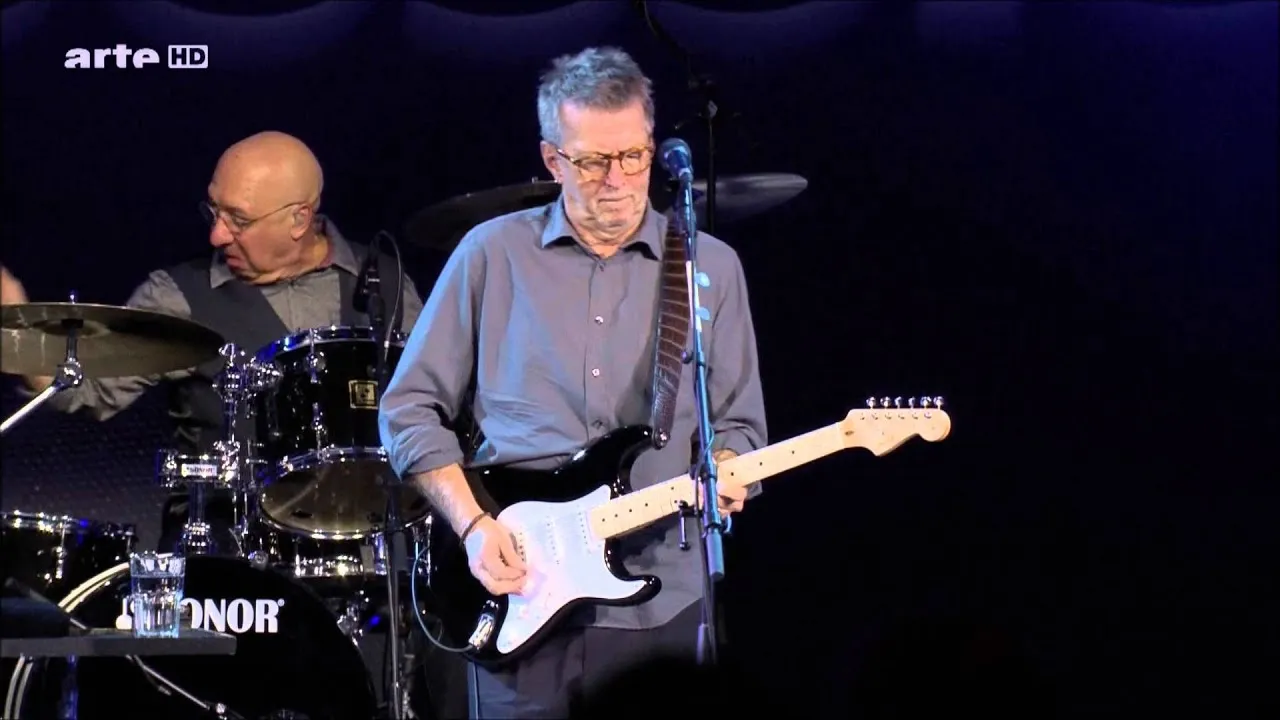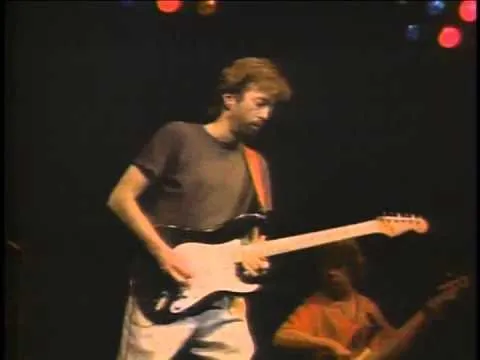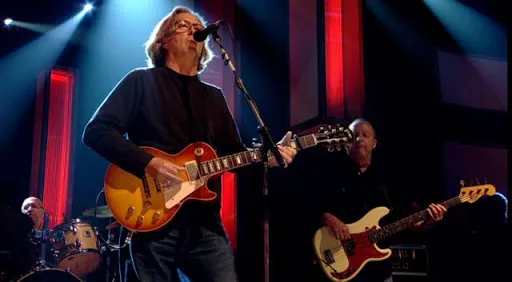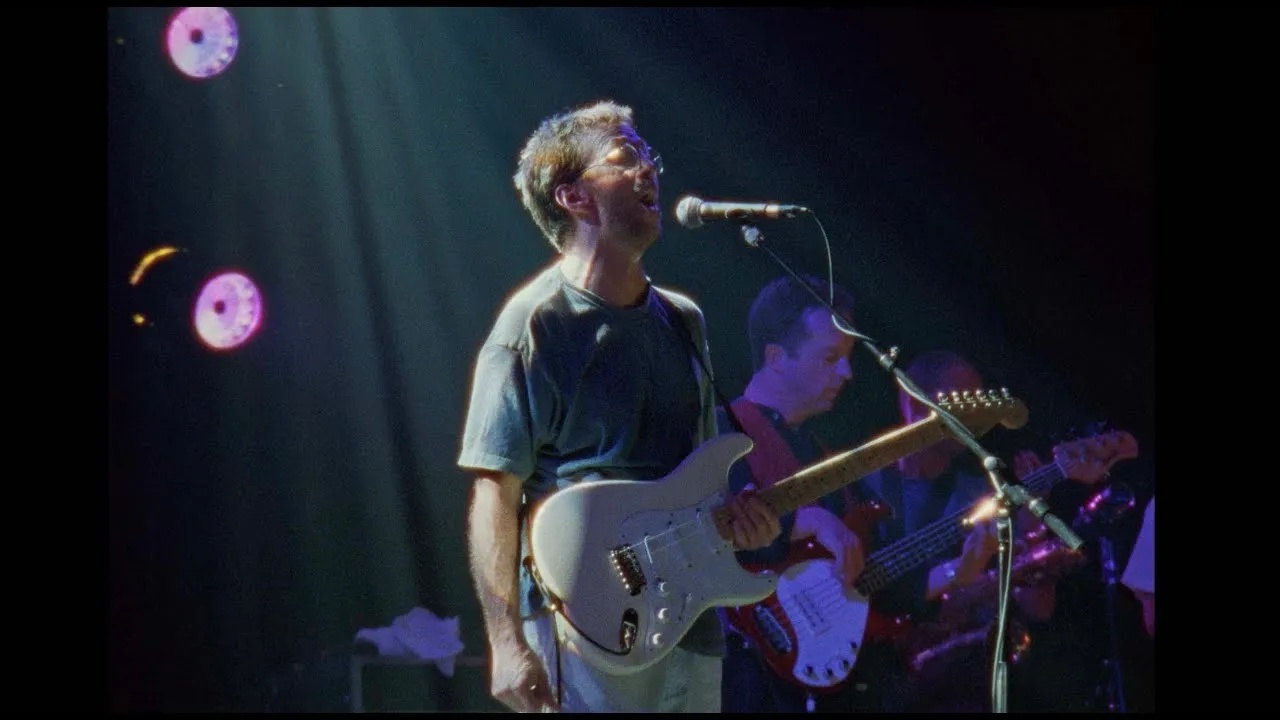About The Song
(Watch the video below)
"Layla" is one of the most iconic rock songs of all time, recorded by Eric Clapton with his band Derek and the Dominos. Released in 1970 as part of the album "Layla and Other Assorted Love Songs," the track is renowned for its passionate delivery, intricate guitar work, and profound lyrics. The song stands as a testament to Clapton's musical prowess and emotional depth, capturing a tumultuous period in his personal life.
The inspiration for "Layla" stems from Clapton's unrequited love for Pattie Boyd, who was married to his close friend and fellow musician, George Harrison of The Beatles. Clapton was deeply infatuated with Boyd, and this unreciprocated love created a profound sense of longing and frustration, which he channeled into his music. The name "Layla" was derived from the Persian poet Nizami's tale, "The Story of Layla and Majnun," which describes a young man driven to madness by his unattainable love for a beautiful woman.
"Layla" is divided into two distinct parts. The first section is an uptempo rock piece characterized by its signature guitar riff, composed by Clapton and Duane Allman. The riff is instantly recognizable and has become one of the defining sounds of classic rock. Allman's contribution was significant; his slide guitar work added a unique texture and urgency to the song.

The second part of "Layla" is a contrasting piano-driven instrumental, composed by the band's drummer, Jim Gordon. This coda, with its hauntingly beautiful melody, adds a layer of melancholy to the piece, reflecting the emotional complexity of Clapton's feelings. The juxtaposition of the two sections — the raw, impassioned first part and the serene, reflective second part — encapsulates the duality of intense passion and deep sorrow.
The lyrics of "Layla" are a raw and honest portrayal of Clapton's inner turmoil. Lines like "What'll you do when you get lonely, and nobody's waiting by your side?" and "You've been running and hiding much too long" reflect his feelings of desperation and yearning. The chorus, with its repeated plea "Layla, you've got me on my knees," is a direct and poignant expression of his vulnerability and desire.
The song's narrative is both specific and universal. While it is rooted in Clapton's personal experience, the themes of unrequited love, heartache, and longing resonate broadly, allowing listeners to find their own meanings and connections within the music.

"Layla and Other Assorted Love Songs" was recorded at Criteria Studios in Miami. The album was produced by Tom Dowd, who played a crucial role in capturing the raw energy and emotion of the performances. Despite the turmoil within the band and Clapton's personal struggles, the recording sessions were highly productive, resulting in one of the most enduring albums in rock history.
Upon its release, "Layla" did not immediately achieve commercial success. The album received mixed reviews, and the song initially charted modestly. However, over time, "Layla" gained recognition as a masterpiece, largely due to its powerful emotional impact and the virtuosic performances by Clapton and Allman. The song's reputation grew through its inclusion in Clapton's live performances and various compilations.
Today, "Layla" is celebrated as a quintessential rock anthem. It has been covered by numerous artists and remains a staple of classic rock radio. Clapton's live acoustic version, performed for "MTV Unplugged" in 1992, won a Grammy Award and introduced the song to a new generation of listeners. This acoustic rendition stripped down the original's intensity, offering a more introspective and mellow interpretation, yet retaining the song's emotional core.
The song's influence extends beyond its immediate impact on rock music. "Layla" has been featured in various films, television shows, and commercials, further embedding it into popular culture. Its iconic status is a testament to its enduring appeal and the universal power of its themes.
For Clapton, "Layla" represents a deeply personal and transformative period in his life. The song's creation was a cathartic process, allowing him to express his innermost emotions and confront his feelings for Boyd. Interestingly, Clapton and Boyd eventually married in 1979, though their relationship was fraught with difficulties and ended in divorce in 1989. Despite the complexities of their relationship, "Layla" remains a powerful artistic expression of Clapton's love and longing.

Listeners often find their own meanings in "Layla," drawn by its raw emotion and masterful musicianship. The song's dual structure — with its intense, riff-driven first part and the soothing, piano-based second part — mirrors the highs and lows of romantic passion, making it a relatable and timeless piece.
"Layla" is more than just a song; it is a profound statement of human emotion, artistic brilliance, and the complexities of love. Eric Clapton's ability to translate his personal experiences into a universally resonant work is a testament to his skill as a songwriter and musician. The collaboration with Duane Allman and the contributions from the other members of Derek and the Dominos created a piece of music that transcends time and genre.
As a cornerstone of Clapton's career and a milestone in rock history, "Layla" continues to captivate and inspire listeners around the world. Its enduring legacy is a reflection of the song's ability to convey the depths of human emotion through the universal language of music.



